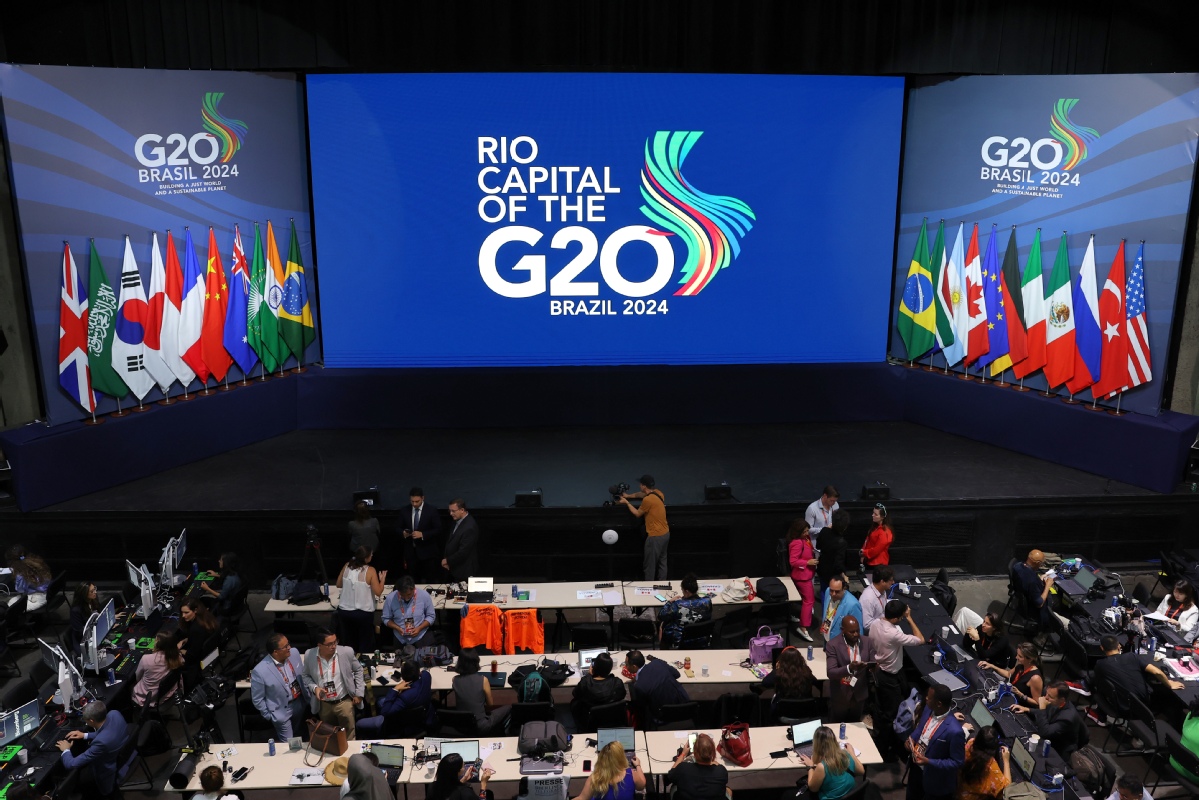
With the Asia-Pacific Economic Cooperation Leaders Meeting in Lima, Peru, being immediately followed by the G20 Summit in Rio de Janeiro, Brazil, all eyes are on Latin America. These gatherings have always held importance for the world, as they bring together global leaders to discuss issues critical to global prosperity, security and cooperation.
The stakes are particularly high this year, with both meetings taking place amid a tumultuous global landscape marked by economic struggles, geopolitical tensions and widespread challenges that need collaborative solutions.
READ MORE: Xi's remarks at APEC event draw praise
People's expectations of the meetings were very high even before Donald Trump was elected the United States' president for a second time, because many consider APEC and the G20 to be platforms for promoting global cooperation, especially at a time when countries are striving to revive economic growth. Yet now, with Trump's victory in the presidential election and his return to the White House in January, world leaders in Peru and Brazil will likely be grappling with a new question: how to defend multilateralism when one of the world's largest economies, to be soon led by Trump, seems increasingly inclined toward a unilateral approach.
The need for multilateral solutions has never been clearer. Countries have been forced to not only deal with slow economic growth but also are facing a range of other challenges, from climate change and health crises to energy shortages and trade disruptions. These issues demand cooperation across borders, regions and industries. However, Trump's "America first" agenda has always leaned toward a more isolated, unilateral stance, one that prioritizes US interests above all else. With Trump's return to power, the "America first" policy is likely to return as well, potentially in a more intense, uncompromising form — effectively, Trump 2.0 on steroids.
US President Joe Biden, who will soon bid farewell to the international stage and could be attending his last important global meetings in the two Latin American cities, has been a staunch advocate for a cooperative, multilateral approach. He even made good his campaign promise of re-entering the US in the Paris Agreement, and supported, even if only in words, collaborative efforts to address global challenges. But with his departure, the responsibility of upholding multilateralism now rests with other leaders who believe in the value of cooperation and diplomacy.
The leaders attending APEC and the G20 have a critical choice to make. They can either shirk their international responsibility and choose to serve only their own national interests, risking the erosion of global frameworks or they can work together to improve and strengthen global governance to better address modern challenges. Multilateralism, although challenging and at times slow, remains the most effective path to finding solutions that work across diverse national boundaries and address the global village needs of our time.
The globally important meetings this year presented an opportunity for leaders to focus on strengthening, not abandoning, global cooperation. Leaders could, for example, prioritize creating fairer trade practices that allow smaller and developing countries to grow alongside the larger economies, implement tangible steps toward sustainability that involve both developed and developing nations, and focus on a coordinated response to health crises that doesn't leave poorer countries behind. These objectives won't be easy to achieve, especially with Trump's influence pushing in a different direction, but with patience and a commitment to the common good, it is possible to realize them.
As for Latin America, the high-profile meetings gave it the opportunity to showcase its own growing importance on the world stage. Countries such as Brazil, Peru and Mexico are becoming increasingly influential players in global trade, environmental protection and ecological conservation. The APEC and G20 meetings offered these countries an opportunity to advocate for policies that reflect their interests and challenges, and to help build a more balanced, more representative and fairer global governance system where the voices of the Global South will also be heard.
ALSO READ: Brazil, China pursue sustainable growth
While Trump's rhetoric centers on an "American golden age", the world needs to aim higher. We need a golden age for humankind as a whole, one that embraces shared prosperity, sustainability, and peace. Such a vision may sound ambitious, even idealistic, but without having set meaningful collective goals, the world risks falling back into a fragmented system where each country fends for itself.
With global leaders gathered in Latin America for the key events, the world is watching and waiting. This is a pivotal moment for the APEC and G20 gatherings, a chance to prove that multilateralism is not just an ideal but a necessity. If leaders can align on common goals and establish frameworks that serve the collective good, they will be defending multilateralism not just in theory but in practice. And if they succeed, they may just pave the way for a brighter, more inclusive future — not only for their respective countries but for all of humanity.
The author is the founder of the China-Europe-America Global Initiative, editor of China and the World in three volumes, and the creator of the Inspiring Series, a collection of books that aims to introduce China to the world.
The views don't necessarily reflect those of China Daily.


